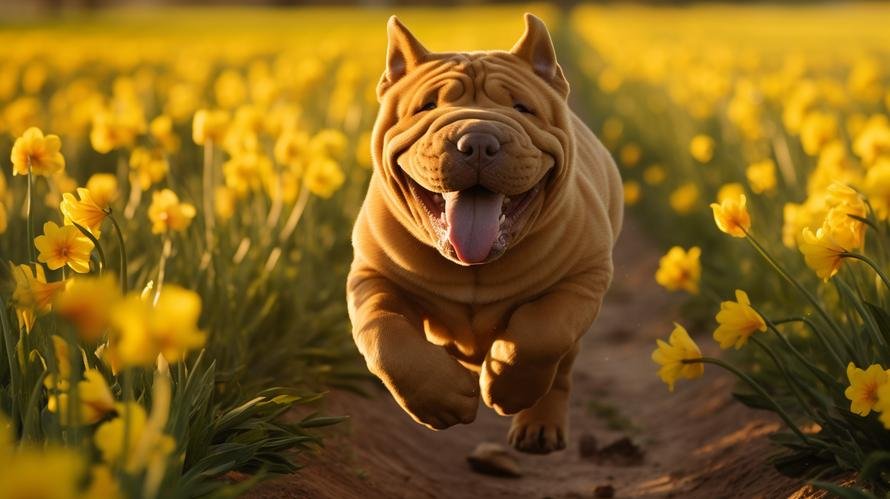Imagine an ancient Chinese breed of dog with deep wrinkles, a bluish-black tongue and a loyal disposition. That’s the Shar-Pei for you! This unique dog breed dates back over 2,000 years, and throughout history, they have been cherished for their tenacity, courage and loyalty.
But, how friendly are they? Do they share the affability, warmth, and cheerful nature that are often seen in many popular dog breeds like Labradors and Retrievers? If you’re thinking of welcoming a Shar-Pai into your family, this question might be on the top of your mind.
Be ready for a few surprises, because this Chinese origin breed survives on their own rules. While some perceive the Shar-Pei as an aloof and standoffish creature, others admire their sensitive and deeply connected soul. The truth, they are a complex mix of qualities that create a distinct personality unlike any other breed.
Diving in deeper, Shar-Peis are not your constantly wagging tail, jumping lick-your-face kind of friendly dogs. They are, in fact, standoffish and somewhat aloof, which could be perceived as unfriendly by those who are accustomed to more typical ‘doggy’ behavior.
However, don’t be quick to label them as anti-social. Shar-Peis have a rich history that reveals why they are the way they are. Originally constituting a part of the peasant class in China, Shar-Peis were bred for guarding, hunting, and herding livestock. This history of independence and adaptability has shaped their ‘born mature’ disposition.
Being a typical ‘one person or one family’ dog, they form deep bonds with their human companions. A well-socialized Shar-Pei can be an affectionate and devoted pet to their family, albeit in a unique, reserved way. They are protective and can be incredibly empathetic towards their loved ones, sensing and responding to their moods. The return? They demand respect, a lot of patience, and understanding.
While their people-pleasing willingness is relatively low, they are intelligent and trainable. They respond well to positive reinforcement techniques. Remember, they were once the multitasking canine-hard workers in Chinese farms and pleasingly responsive to their master’s commands. So, if you want a well-behaved Shar-Pei, start training them early and use encouraging methods.
Around strangers, Shar-Peis are usually reserved and wary due to their strong guarding instincts. This doesn’t mean they will respond harshly or impulsively- the breed is known for its discerning and thoughtful temperament. Once they realize there is no threat, they can be politely indifferent to others. However, early socialization is key in helping them become more welcoming to new faces and places.
With kids, Shar-Peis can be the perfect companion provided children respect their space and interact with them kindly. As with their relationships with adults, they will be warm and protective towards children who have earned their trust. Because of their stoic nature, rough play from children may not always be well-received. Therefore, it’s advisable that interactions between Shar-Peis and young children are monitored.
Now, you won’t probably find a Shar-Pei in your typical dog park, bounding around energetically with its counterparts. They are not meant to be the life of the party, and their playfulness is of a different sort—less exuberant, more tempered. They do, however, get along pretty well with other pets in their household if they are raised together.
In conclusion, while the Shar-Pei may not be the poster child for the quintessential friendly dog, they bring something entirely unique to the table— a sturdy self-reliance blended with a profound ability to bond. Their friendliness comes in a quirky package that demands understanding and respect. With the right kind of nurturing, they can be amazing companions, offering a beautiful blend of strength and sensitivity, loyalty, and discerning intelligence.



